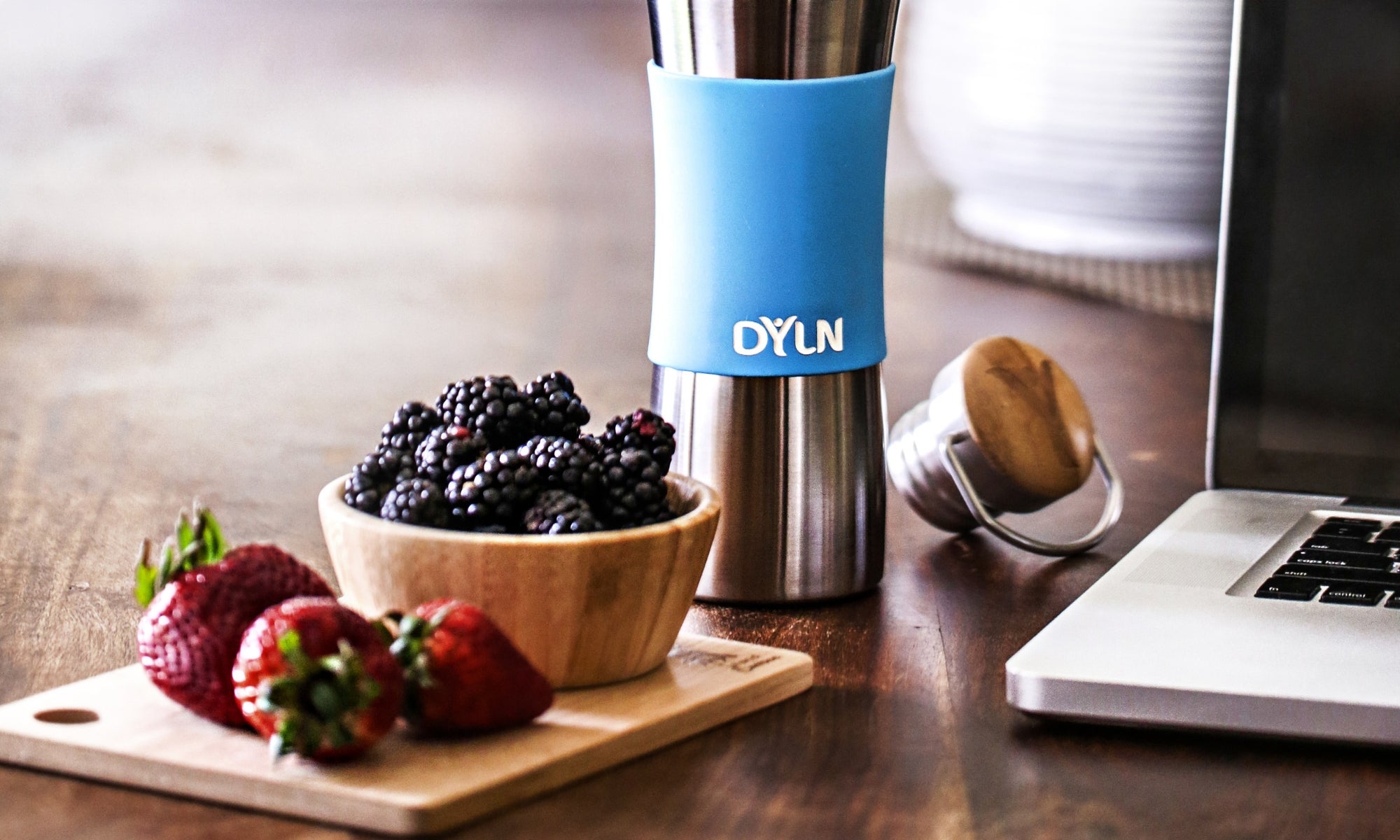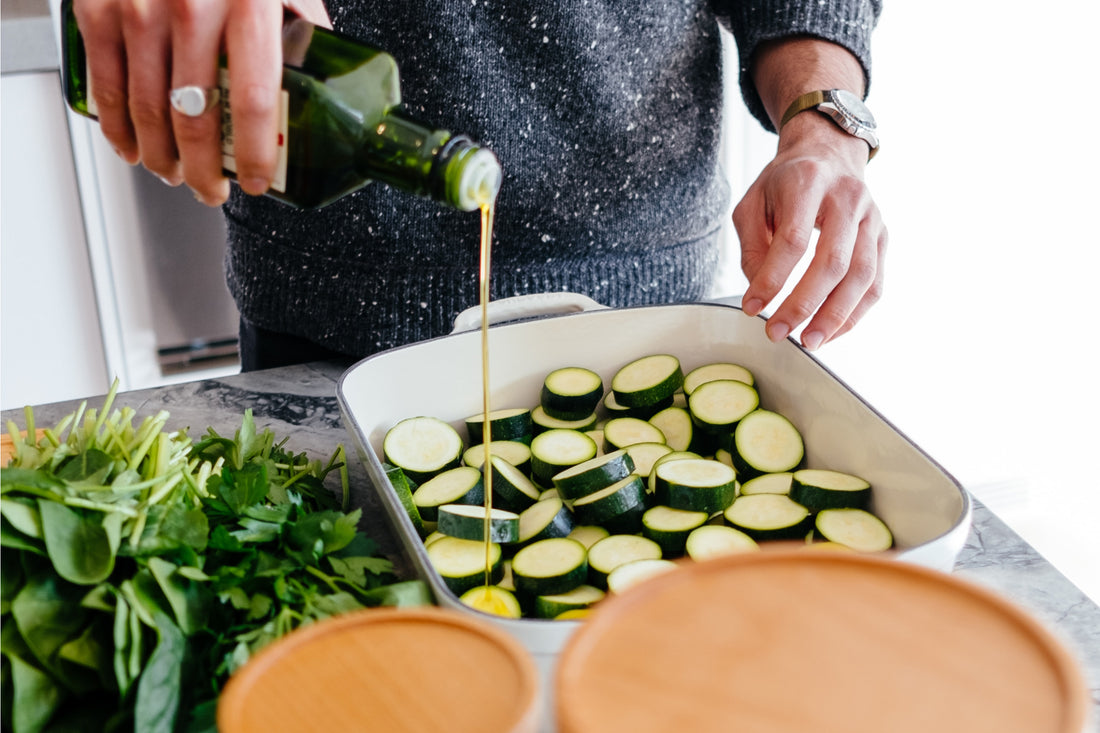You know that the pH levels in your body have a big impact on your health and wellbeing. And you’ve learnt that in order to maintain a healthy pH and increase the alkaline in your body, you need to include lots of alkaline foods in your diet.
But how do you know whether a particular food is alkaline or not? To help you nourish your body with ease we’ve put together a list of powerfully nutritious alkaline food choices.
What Are Alkaline Foods?
Alkaline foods are foods which have an alkaline effect once processed by your metabolism — as opposed to an acidic effect. It can be useful to think of your metabolism as your digestive fire. This fire takes food and turns it into energy; and afterwards, the waste left behind is the ash. Depending on the type of food you’ve eaten, this ‘ash’ could be alkaline or acidic.
So if you consume foods which create acidic ash, the acid levels in your body will rise. If you consume foods which create alkaline ash, your body will be more alkaline.
How do Alkaline Foods Work?
As it is the residue which has a lasting alkaline or acidic effect on your body, foods which increase alkaline are not necessarily alkaline before you eat them.
Confused?
Don’t worry!
Lemons are a handy example of this. pH levels — that’s the level of alkaline or acid in food or in your body — are measured on a scale of 0-14. The middle of that scale, 7, is neutral. The lower end of that scale, 0-6, is acidic; and the higher end, 8-14, is alkaline. Lemons in their natural form are acidic, with a pH level of roughly 2. But once lemons have been processed by your metabolic system and left their metabolic residue behind, that residue — or ash — is very alkaline, with a pH level of around 9.
Including high quantities of foods with an alkalizing effect will steadily raise and maintain the alkaline level of your blood. And this supports the healthy functioning of your physiological systems and improves overall wellbeing.
Benefits can include:
- Stronger immune system — reducing your chances of catching minor and more serious illnesses.
- Increased blood oxygen which keeps the turnover of new cells regular, reducing risk of conditions relating to low blood oxygen levels or slow cellular metabolism.
- Weight loss or easier maintenance of current healthy weight.
- Increased energy and vitality.
- More effective natural detoxifying systems within the body, supported by antioxidants in alkaline foods.
What About Alkaline Water?
Drinking more alkaline water works brilliantly to complement an alkaline diet. It’s an easy and quick way to boost your alkaline levels at any time — especially if you use the DLYN Alkaline Water Bottle to make your own alkaline water instantly, anywhere.
Many of us have a standard diet which includes high quantities of very acidic foods — including meat, dairy, refined sugar and processed foods. And this causes our bodies to dip into existing alkaline reserves to keep the balance. When we drink alkaline water, we give our metabolic systems a new source of alkaline — allowing our clever bodies to more easily maintain a healthy pH internally.
Most tap water has a neutral pH of around 7; so it’s not bad. But we can make it better by turning neutral water into alkaline water.
Your Go-To Alkaline Food List

This list is not comprehensive — there are hundreds of highly alkaline foods available to you, especially if you focus on building a more plant-based diet. But include the items below in your daily diet as often as you can and you’ll be well on your way to a vibrantly healthy body.
Fruits
Alkaline fruits are great additions to your diet. You can carry them with you to ensure you have an alkaline snack on hand at any time, as well as include them in salads and cooked meals.
- Avocado
- Apple
- Banana
- Blueberries
- Coconut
- Figs
- Grapefruit
- Grapes
- Kiwi
- Lemon
- Lime
- Mango
- Pineapple
- Pomegranate
- Papaya
- Pear
- Strawberries
- Tangerine
- Tomato
- Watermelon
Veggies
Many vegetables leave an alkaline imprint on your body. So if you find yourself facing a choice between processed or refined foods and any vegetable, always go for the vegetable — or at least include it alongside other food choices. The vegetables below are particularly valuable to upping the alkaline in your diet, but when it comes to veggies, your healthy choices are almost limitless.
You can nibble these veggies raw as a snack, or incorporate them into delicious and wholesome meals. Check out the Alkaline Diet Plan on our blog for a few super simple recipes.
- Asparagus
- Artichoke
- Basil
- Broccoli
- Beetroot
- Cabbage
- Cauliflower
- Carrot
- Celery
- Courgette
- Cucumber
- Endive
- Eggplant
- Green Beans
- Ginger
- Garlic
- Kale
- Lettuce
- Mint
- Parsley
- Pumpkin
- Snow peas
- Sweet potato
- Spinach
- Squashes
- Turnip
Nuts & Seeds
Nuts and seeds are incredible — they’re so healthy, packed with protein and essential fatty acids, and they’ll support your body in balancing its pH. On top of that, they’re easy: you can take them with you and snack on them wherever you are.
And of course, you can cook with them too. Include nuts and seeds in salads and roasts; make tasty protein bliss balls rolled in sesame or flax seed; and buy or make high quality, salt and sugar-free nut butters.
- Almond
- Cashew
- Macadamia
- Pumpkin seed
- Flax seed
- Sesame seed
- Sunflower seed
Grains & Other Foods
A few small changes in your daily diet can make a big huge difference to your overall health. For example, do you eat bread every day? Try switching your regular bread for a spelt loaf, or sprouted bread. Do you cook with oils? Choose natural fruit and seed oils for increased alkaline. Do you love homemade curries? Throw in lentils or any of the beans included in the list below.
Most of us consume a variety of grains and beverages on a daily basis. By becoming a little more conscious about which grains you’re eating or cooking with, and what exactly you’re drinking, you can nurture your body by just slightly altering your shopping habits — rather than feeling daunted by a total overhaul.
- Almond milk
- Alkaline water
- Buckwheat
- Chia
- Green tea
- Lima beans
- Lentils
- Mung beans
- Millet
- Natural oils
- Quinoa
- Sprouts
- Oat milk
- Tofu
How to Make an Alkaline Diet Part of Your Everyday Routine
All of the alkaline foods in this blog post can be included in your diet every day. And you don’t have to give up on your favourite meals and snacks. Instead of thinking of it as changing everything, consider replacing some of the acidic items you consume most frequently with alkaline versions. They might even taste better!
Is pizza your ultimate comfort food after a long day of work? Make an alkaline pizza. No — really. You can make a pizza dough with spelt flour, alkaline water, and just a pinch of salt. Top it with fresh tomatoes, olives, and goat cheese — which has a much higher pH than cheese made from cow’s milk. Drizzle with avocado oil and you’re good to go.
Other easy ways to integrate alkaline choices into your daily routine include:
- Start every day with a green tea, or a mug of hot water with fresh lemon.
- Carry alkaline water with you so that you can hydrate with body-supportive water.
- Think ahead — just a little forward planning makes all the difference. Pack nuts, chopped veggies and fresh fruit to snack on at work or while you’re out and about.
Conclusion
We hope this list has armed you with the tools you need to boost your body’s alkaline with confidence. It doesn’t have to be difficult or expensive. You can make small adjustments to your existing eating habits which will have far-reaching positive consequences for your health.
Eating alkaline is important for everyone — but for those of us who live within a food culture which promotes high fat, high sugar, high salt and highly processed foods, it’s crucial to develop an awareness of what we’re putting into our bodies. In doing so, we give ourselves the opportunity to feel good. To be healthy. To feel well — and for longer. We reduce our chances of serious illness, and we feel more energetic and strong on a day to day basis.





